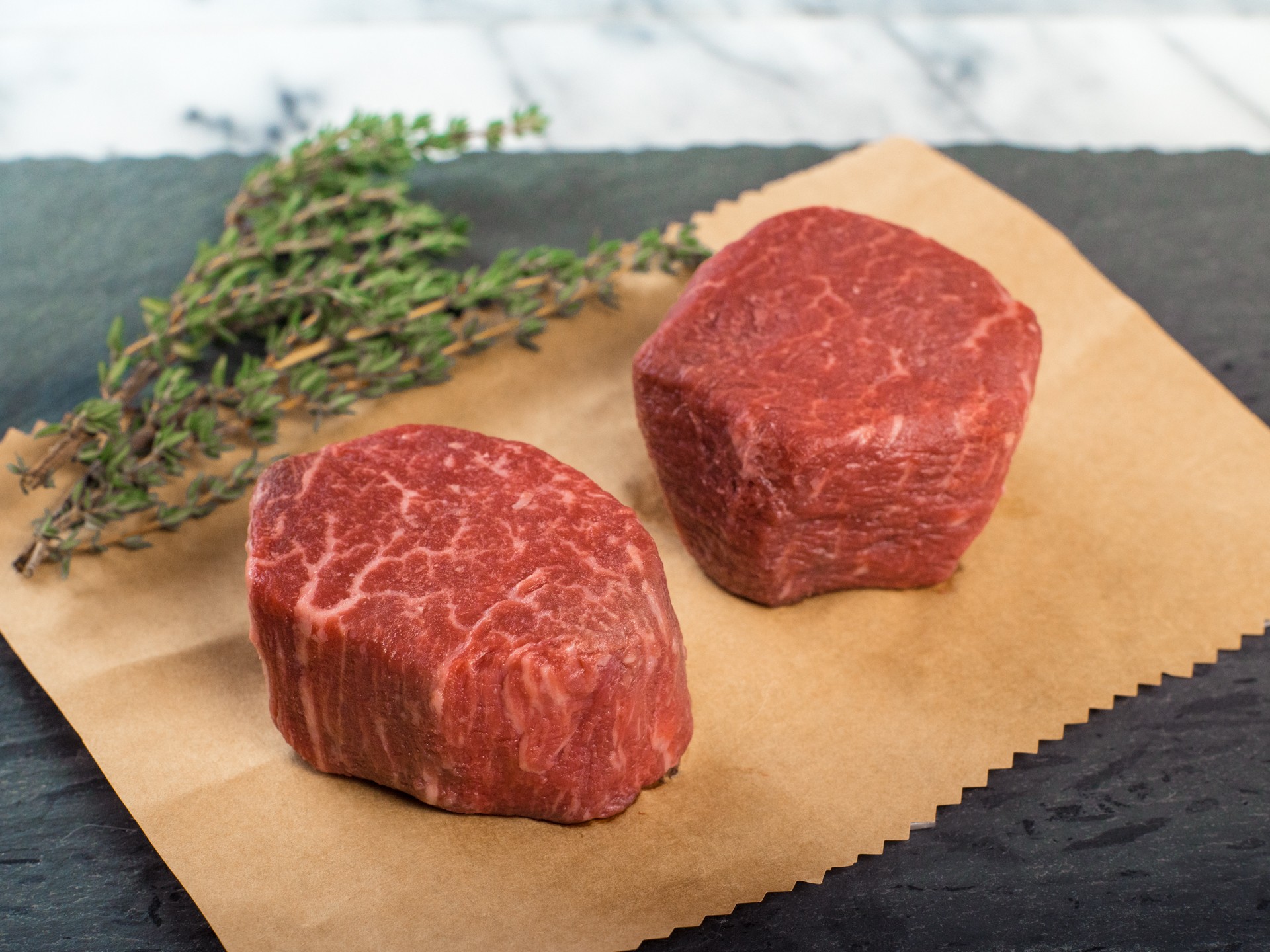The Kobe Beef Conundrum
You have beef on your mind; either chicken and pork aren’t cutting it or you’ve had salad for the past five days. Regardless, you need to dig your teeth into some scrumptious steak or a bountiful burger before you turn into a walking vegetable. So, you head to the nearest restaurant, browse the menu, notice the words “Kobe” and “beef” together, make your order, and bite your teeth into it. You’re content knowing that you’ve selected some of the best beef around. However, you’re eating a lie – actual beef, but a lie nonetheless.
Most likely you’ll be eating a strain of beef called “Wagyu.” Wagyu, loosely translated, means “Japanese cattle” and can refer to any cow that is bred in Japan or the Japanese-style. The difference between Wagyu beef and regular beef comes down to selection, care, feeding, and the obsessive, extraordinary efforts of Wagyu breeders.
Wagyu beef is striking because its high degree of marbling (high amounts of intramuscular fat) adds an extraordinary depth of flavor making it one of the most tender and succulent types of beef one can find. Not only is it a gastronomic delight, but Wagyu beef offers higher counts of mono-unsaturated to saturated fat ratios and a fatty acid called conjugated linoleic acid (CLA).

Regular beef (left) and Wagyu beef (right). Note the differences in fat streaks.
So what’s Kobe beef? Well, there is no official strain of beef titled “Kobe.” That beef is actually called “Tajima-Gyu” that is raised to strict standards in the prefecture of Hyogo (whose capital city is Kobe). Kobe beef is so selective that cattle must meet the following seven standards upon slaughter to meet the following requirements:
- Bullock (steer) or virgin cow
- Tajima-Gyu born within Hyogo Prefecture
- Fed on a farm within Hyogo Prefecture
- Meat processed within Hyogo Prefecture
- Marbling rating (BMS) of 6 or higher on a 12 point scale
- Meat quality rating of 4 or higher on a 5 point scale
- An overall weight not exceeding 470kg
Given these standards, only 3,000 head of cattle qualify as truly authentic Kobe cows- everything else is simply lesser. With this in mind, producers sell Kobe beef at exorbitant, reasonable prices. That doesn’t stop shady restaurants, grocery stores, and wholesalers from selling simple Wagyu – or even non-Wagyu – cuts of beef as Kobe beef. Nonetheless, you can gauge whether or not the beef is legitimately Kobe by price: if an advertised burger costs $20, it’s most likely standard Wagyu; if a burger costs $50, then it’s safe to assume that it has quality Kobe.
Overall, the relationship between Wagyu beef and Kobe beef is the same as steaks and ribeye – every piece of Kobe beef is Wagyu, but not every piece of Wagyu beef is Kobe. So keep this knowledge in mind if you happen to come across real, unfiltered Kobe beef.
Sources:
https://www.mychicagosteak.com/steak-university/2016/05/10/wagyu-kobe-beef-difference/
https://www.debragga.com/p/about-our-meats/what-is-wagyu-beef/
http://www.buedelmeatup.com/2012/12/04/the-difference-between-kobe-and-wagyu-beef/

